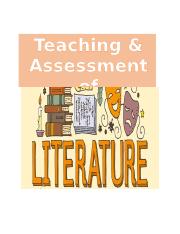Course Description:
The course is designed to help students examine how race, ethnicity, and culture influence students' experiences in school, and implement a multicultural approach to teaching. This course provides students with the knowledge and concepts they need to develop appropriate, informed, and sensitive responses to the rich diversity of student learners in the classroom. The course will explore cultural assumptions, attitudes, and values that shape our perceptions and predicate our action.
Course Outcomes:
|
1. Demonstrate multicultural concepts and issues to promote greater understanding and appreciation of cultural diversity in the classroom. 2. Apply elements relating to cultural diversity at the community, national, and international levels into instructional practice consider what multicultural concepts and issues look like in an actual school setting by making a link between the course readings/class discussions throughout the semester. |
3. Make a link between the course readings/class discussions and the selection of instructional materials that promote cultural diversity
This course includes the study of the fundamental research-based concepts and principles in curriculum and curriculum development as a
foundation to engage prospective teachers as curricularists. It also focuses on the more active role of the teacher in planning a
developmentally-sequenced teaching-learning process; identifying constructively-aligned learning outcomes and competencies;
contextualizing, localizing and indigenizing curricula; implementing relevant and responsive learning programs; and evaluating the curriculum
towards its improvement. The teachers’ individual, collegial and collaborative roles in managing school curriculum change vis-à-vis various
contexts of teaching-learning, curricular requirements and curricular reforms shall also be given emphasis.


